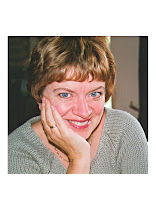
I have been a MSLEXIA subsciber since 2000 and one of the many things I enjoy about it is the "100 Ways to write a book" feature which follows their interview with a successful novelist. Last quarter's issue and the 40th "Way" was Isabel Allende, which featured odd advice like "Start every book on 8th January" and sane precepts like "Weekends are for family and friends."
The current one is Nicola Barker's "Way," which advocates early rising, meditation, and watching a lot of television. Some of suggestions I could not possibly follow ("Try to avoid reading fiction when you're writing") even though I understand why she makes them.
The fact is that if a would-be writer reading Mslexia followed all the 41 Ways already printed, or even stuck to just one published writer's method, it would not necessarily, for them, result in a satisfying and publishable novel.
But whether they are quirky or sensible, ritualistic or practical, the Ways are always fascinating. As was the very different interview with James Patterson in last Sunday's Observer, which describes an altogether different Way. You can read the interview here:
http://www.guardian.co.uk/books/2009/apr/05/james-patterson-author-bestseller
Patterson is introduced as the world's leading bestselling author, which I've no reason to doubt (And top PLR earner too). What interests me is that he now does it by using 'collaborators.' "He comes up with the plot, they write the sentences, he reviews draft after draft," says interviewer Gaby Wood.
This is eerily reminiscent of an interview with Jordan last year in which her PR person told a journalist that Katie Price came up with the plots and her ghost-writer "put them into book words." This delighted me and my writer friends, who have often been heard to mutter since then that we were having trouble with "the book words."
And it raises the question again of what makes a novel a good book, as opposed to just a good read. Patterson is evidently very hard-working, in that he is at his desk by 5.30 or 6am every day, after around six hours' sleep. I certainly don't work those hours myself. And although he uses seven or eight 'collaborators' these days, his books were successfully published for twenty years before he adopted this method.
He used to be chief executive at J Walter Thompson advertising agency and probably knows more than any other writer about marketing himself as a brand, even though he works in more than one genre.
He didn't come across as at all a bad guy but I just kept thinking how much I would hate to write in this way. And how much the plot is only one part, albeit a vital one, in my books. Though sometimes writing them is tough and one daily experiences what Eliot called "the intolerable wrestle with words and meaning" the thought of delegating someone else to write the book words, no matter how much I revised them afterwards, fills me with horror. Even if it brought with it the No 1 bestseller spot every week and top PLR every year.
Call it superstitious or oddball, my Way involves doing every bit of it myself and I wouldn't have it any other way.

